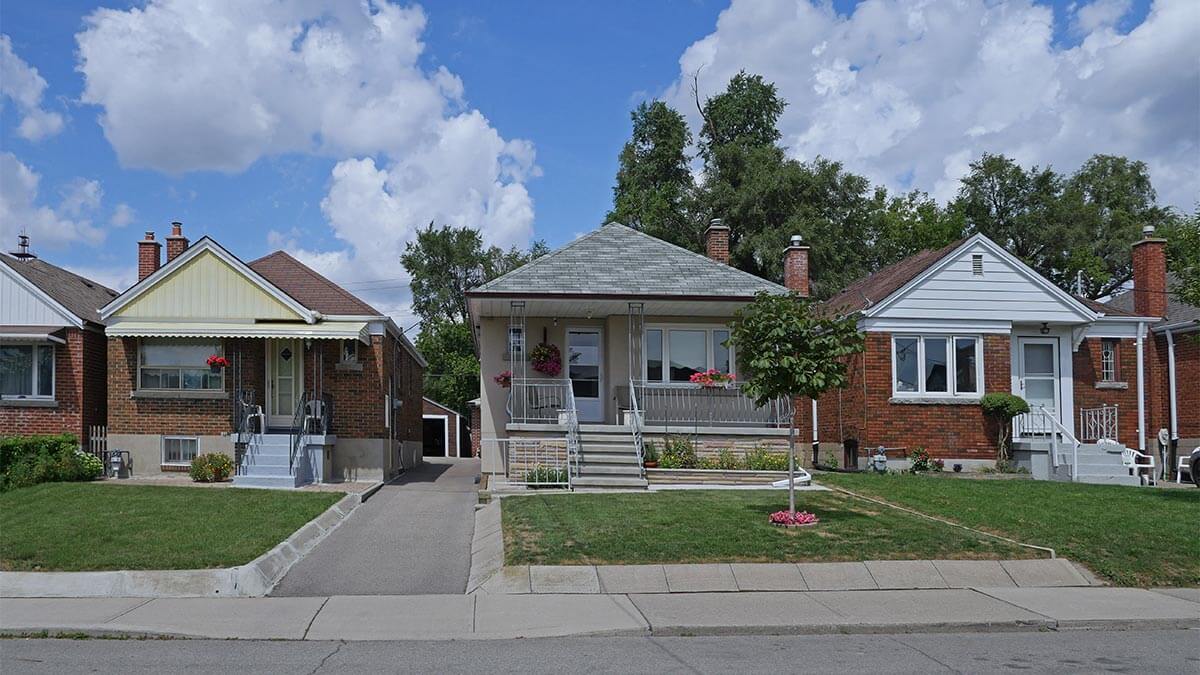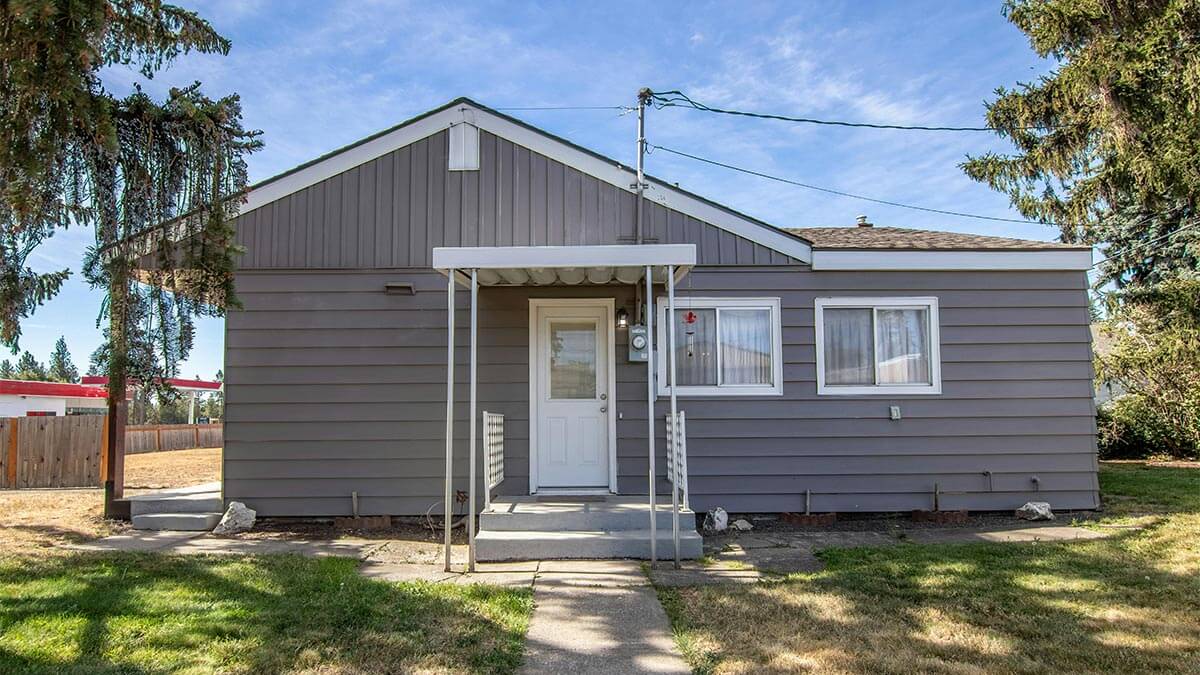Selling a house can feel like running a marathon. Repairs pop up, showings drag on, and buyers can be picky. But what if you could skip the repairs and sell your home just the way it is? That’s what selling a house as-is is all about. It means putting your home on the market without fixing anything. No stress over leaky roofs or cracked tiles.
Now, you might wonder—is this the right move for me? Well, if your place needs a little love but you don’t have the time or budget to handle it, selling as-is could be a real lifesaver. You’ll attract buyers who know what they’re getting and are ready to take on the work themselves.
And here’s the good news—at iBuyer.com, you can get a fair, data-backed cash offer for your home without the headaches. No repairs. No surprises. Just a simple way to move on your terms.
Instant Valuation, Confidential Deals with a Certified iBuyer.com Specialist.
Sell Smart, Sell Fast, Get Sold. No Obligations.
Table of contents
- What Does It Mean to Sell Your House As Is?
- Who Buys a House As Is?
- Selling an Inherited House As Is
- Pros and Cons of Selling a House As Is
- How Much Do You Lose Selling a House As Is?
- 5 Tips for Selling a House As Is Without Losing Your Shirt
- Reilly’s Two Cents: How I Help Sellers Navigate Selling As Is
- Is Selling As Is Right for You? (Decision-Making Guide)
- Ready to Sell Without the Hassle?
- Frequently Asked Questions
- Selling a House As Is: State-by-State Requirements
What Does It Mean to Sell Your House As Is?
Selling your house as-is means you’re selling it in its current condition—warts and all. You’re telling buyers, “What you see is what you get.” If there’s a leaky faucet, a creaky floorboard, or a roof that’s seen better days, you’re not fixing it. The buyer takes on those issues after the sale.
But here’s something important—as-is doesn’t mean you can hide problems. In most states, you still need to disclose major repairs or issues that could affect the home’s value. Think of it like being upfront with a friend. Buyers will know what they’re walking into, and that can help smooth the process.
In today’s housing market, there are plenty of potential buyers looking for a project. Some want a fixer-upper to make their own, and others (like real estate investors) are hunting for properties they can flip or rent. Selling as-is opens the door to these kinds of buyers, making the sale quicker and easier for you.
If you’re considering entering the flipping space, read our guide on how to start flipping houses.
Who Buys a House As Is?
When you sell your home as-is, you’re not aiming for the folks who want a picture-perfect, move-in ready place. Instead, you’re attracting buyers who see potential—even if the walls need paint or the kitchen is stuck in the ‘90s.
Most of the time, these buyers are real estate investors. They’re pros at spotting a deal, making major repairs, and flipping homes for a profit. Others might be cash buyers who aren’t scared of a little elbow grease and want to get in on a fixer-upper at a lower sales price.
There’s also a group of handy homeowners who aren’t afraid of rolling up their sleeves. They might want to customize the place themselves, turning it into their dream home one project at a time.
The good news? These buyers often move fast and don’t get hung up on small details. They know what they’re getting and aren’t expecting perfection.
Selling an Inherited House As Is
Inheriting a property can be both a blessing and a challenge. Often, inherited homes come with emotional attachments and may require significant repairs or updates. Selling the property as-is can be an efficient solution, allowing you to transfer ownership without undertaking costly renovations.
When selling an inherited house as-is:
- Probate Process: Before selling, ensure that the property has cleared probate, granting you the legal authority to sell.
- Tax Implications: Understand the capital gains tax responsibilities, which are typically based on the property’s value at the time of inheritance.
- Property Condition: Inherited homes may have been unoccupied or neglected, making as-is sales appealing to buyers looking for renovation projects.
- Emotional Factors: Selling a family home can be emotionally taxing. Consider seeking support to navigate the sentimental aspects of the sale.
By addressing these factors, you can make informed decisions and facilitate a smoother transaction when selling an inherited property as-is.
Pros and Cons of Selling a House As Is
Pros: Save Time and Money
The biggest win? You can skip the repairs. No need to spend weekends fixing leaky sinks or patching up drywall. You save time and money right off the bat. Plus, real estate investors and cash buyers love the chance to move fast on a deal.
Selling as-is can also speed things up. Since buyers aren’t expecting a move-in ready home, there’s less back-and-forth about repairs. Deals close quicker, and you can move on.
If you’re selling a property as-is, learning more about selling a house for cash can help you weigh your best options.
Cons: Expect Lower Offers
On the flip side, buyers know they’re taking on a project. That means they often offer less than your list price would be if the house were in top shape. Some may even toss out lowball offers, hoping you’re desperate to sell.
You might also face a smaller pool of potential buyers. Families looking for a turn-key home may pass. But for the right buyer, selling as-is can be a great fit.
While selling as-is saves you repair costs, if the only obstacle is financing those improvements, you could renovate your house with no money by tapping into grants or loan programs to boost its value.
How Much Do You Lose Selling a House As Is?
This is the question every home seller asks—how much will I lose if I sell as-is? The truth is, it depends. On average, homes sold as-is might sell for about 15%–20% less than move-in ready homes in the same area. But that discount often covers the repair costs the buyer expects to handle.
Let’s break it down. If a real estate agent suggests your home could sell for $300,000 fixed up, but it needs $40,000 in home improvements, an as-is sale might land around $240,000–$255,000. That way, the buyer takes on the repairs, and you avoid the stress and upfront expenses.
The key is knowing your housing market. In a hot market, buyers might overlook some flaws and pay closer to your asking price. In a slower market, the discounts could be deeper.
Tip: Get a few opinions from agents or investors to know where you stand.
5 Tips for Selling a House As Is Without Losing Your Shirt
1. Set a Realistic Price
Buyers know they’re getting a deal, but that doesn’t mean you have to give your home away. Look at recent home sales in your area and work with a real estate agent who understands how to price an as-is home.
2. Highlight the Home’s Potential
Even if your place needs some home improvements, it likely has features buyers want. Maybe it’s a great location or a big backyard. Show off what makes it special.
3. Be Honest About Repairs
Always be upfront about any major repairs. Buyers appreciate honesty, and it helps avoid surprises later. A little transparency goes a long way.
4. Consider Cash Buyers or Investors
Real estate investors and cash buyers move fast and won’t nitpick over every detail. They expect some work and usually handle repair costs themselves.
5. Keep the Place Tidy
You don’t need to remodel, but a clean, uncluttered space helps potential buyers see the home’s potential. A little elbow grease can make a big difference!
Even if your home needs a little TLC, these split-level home selling tips can help make the space more appealing to buyers without major renovations.
Reilly’s Two Cents: How I Help Sellers Navigate Selling As Is
I’ve worked with plenty of sellers who felt overwhelmed by the thought of fixing up their home before listing. In Florida, I’ve seen firsthand how stressful it can be to juggle repair costs, timelines, and buyer expectations. But I’ve also seen how selling a home as-is can take a huge weight off your shoulders.
If you’re thinking about going this route, here’s my advice:
First, always be upfront about the home’s condition. Buyers aren’t expecting perfect, but they do appreciate honesty. I’ve found that clear communication builds trust and keeps deals from falling apart later.
Second, don’t sell yourself short. Even if your home needs work, it’s got something special—a solid structure, a great neighborhood, or maybe just good bones. Make sure to highlight the positives.
Lastly, consider working with real estate investors or cash buyers if you want a faster, simpler process. In my experience, they tend to understand the ins and outs of as-is sales and won’t waste your time.
Selling as-is isn’t for everyone, but it can be a smart way to move forward without getting bogged down in home improvements.
Is Selling As Is Right for You? (Decision-Making Guide)
Still on the fence? Here’s a quick checklist to help you decide if selling your house as is makes sense:
- Your home needs major repairs you can’t or don’t want to handle.
- You’d rather save time and money than invest in home improvements before selling.
- You need to sell quickly—maybe due to a life change or to avoid foreclosure.
- You’re okay with a lower sales price in exchange for skipping repairs.
- You’re open to real estate investors or cash buyers.
If you checked off a few of these, selling as-is could be the stress-free solution you’ve been looking for.
For sellers looking to avoid repairs entirely, a cash buyer can be a smart option, for example, our ASAP Cash Offer review reveals how one buyer handles as-is purchases and the trade-offs involved.
Ready to Sell Without the Hassle?
Selling a house as-is isn’t about giving up—it’s about choosing what works best for you. If making home improvements feels like too much, or you’re short on time and money, selling as-is could be the smartest move. Sure, you might get a bit less than if you fixed everything up, but you also skip the stress, the waiting, and the unexpected repair bills.
Many sellers combine practical strategies with meaningful gestures, like placing a St. Joseph statue to help sell a house faster.
When you’re ready to move forward, don’t settle for less than a fair deal. At iBuyer.com, we give you a data-backed cash offer that makes sense for your situation—no hidden fees, no last-minute drama. Take the guesswork out of selling your home.
Compare Cash Offers from Top Home Buyers. Delivered by Your Local iBuyer Certified Specialist.
One Expert, Multiple Offers, No Obligation.
Frequently Asked Questions
Work with a real estate agent who knows your local housing market. They’ll compare recent home sales and adjust for repair costs. This helps set a fair list price that attracts potential buyers without leaving money on the table.
Not always. Some real estate investors offer fair deals based on the repair costs and market value. Getting multiple offers can help you spot a solid deal and avoid lowball offers.
Yes, you can! The sales price will go toward paying off your mortgage balance. If you owe more than what the home sells for, you might need to work with your lender on a short sale.
Absolutely. Selling as-is means you won’t make repairs, but you still have to tell buyers about known issues. This keeps things honest and helps avoid legal trouble later.
It often speeds things up. With fewer negotiations about repairs, cash buyers or real estate investors can close in as little as 7-14 days.
Selling a House As Is: State-by-State Requirements
Alabama – Sellers must disclose known defects. – Sell as is in Alabama
Alaska – Sellers must disclose known defects. – Sell as is in Alaska
Arizona – Sellers must disclose known defects. – Sell as is in Arizona
Arkansas – Limited disclosure but known issues must be shared. – Sell as is in Arkansas
California – Strict disclosure rules apply. – Sell as is in California
Colorado – Sellers must disclose known issues. – Sell as is in Colorado
Connecticut – Disclosure report required. – Sell as is in Connecticut
Delaware – Full disclosure required. – Sell as is in Delaware
Florida – Known defects must be disclosed. – Sell as is in Florida
Georgia – Caveat emptor, but known material defects must be shared. – Sell as is in Georgia
Hawaii – Detailed disclosure required. – Sell as is in Hawaii
Idaho – Sellers must disclose known issues. – Sell as is in Idaho
Illinois – Property disclosure required. – Sell as is in Illinois
Indiana – Sellers must complete the disclosure form. – Sell as is in Indiana
Iowa – Disclosure form required. – Sell as is in Iowa
Kansas – Sellers must disclose known issues. – Sell as is in Kansas
Kentucky – Disclosure form required. – Sell as is in Kentucky
Louisiana – Known defects must be disclosed. – Sell as is in Louisiana
Maine – Disclosure form required. – Sell as is in Maine
Maryland – Disclosure or disclaimer statement required. – Sell as is in Maryland
Massachusetts – Must disclose known lead paint; other defects must be shared. – Sell as is in Massachusetts
Michigan – Sellers must disclose known issues. – Sell as is in Michigan
Minnesota – Disclosure form required. – Sell as is in Minnesota
Mississippi – Sellers must disclose known defects. – Sell as is in Mississippi
Missouri – Disclosure form required. – Sell as is in Missouri
Montana – Sellers must disclose known issues. – Sell as is in Montana
Nebraska – Disclosure statement required. – Sell as is in Nebraska
Nevada – Sellers must disclose known defects. – Sell as is in Nevada
New Hampshire – Disclosure statement required. – Sell as is in New Hampshire
New Jersey – Known issues must be disclosed. – Sell as is in New Jersey
New Mexico – Disclosure form required. – Sell as is in New Mexico
New York – Sellers must disclose or give a credit. – Sell as is in New York
North Carolina – Disclosure form required. – Sell as is in North Carolina
North Dakota – Sellers must disclose known defects. – Sell as is in North Dakota
Ohio – Disclosure form required. – Sell as is in Ohio
Oklahoma – Disclosure form required. – Sell as is in Oklahoma
Oregon – Disclosure statement required. – Sell as is in Oregon
Pennsylvania – Known defects must be disclosed. – Sell as is in Pennsylvania
Rhode Island – Disclosure form required. – Sell as is in Rhode Island
South Carolina – Disclosure form required. – Sell as is in South Carolina
South Dakota – Sellers must disclose known issues. – Sell as is in South Dakota
Tennessee – Disclosure form required. – Sell as is in Tennessee
Texas – Sellers must disclose known defects. – Sell as is in Texas
Utah – Sellers must disclose known defects. – Sell as is in Utah
Vermont – Disclosure form required. – Sell as is in Vermont
Virginia – Sellers provide a disclaimer but must share known defects. – Sell as is in Virginia
Washington – Disclosure form required. – Sell as is in Washington
West Virginia – Sellers must disclose known issues. – Sell as is in West Virginia
Wisconsin – Disclosure report required. – Sell as is in Wisconsin
Wyoming – Sellers must disclose known defects. – Sell as is in Wyoming
Reilly Dzurick is a seasoned real estate agent at Get Land Florida, bringing over six years of industry experience to the vibrant Vero Beach market. She is known for her deep understanding of local real estate trends and her dedication to helping clients find their dream properties. Reilly’s journey in real estate is complemented by her academic background in Public Relations, Advertising, and Applied Communication from the University of North Florida. This unique combination of skills has enabled her to seamlessly blend traditional real estate practices with cutting-edge marketing strategies, ensuring her clients’ properties gain maximum visibility and sell quickly.
Reilly’s career began with a strong foundation in social media marketing and brand communications. These skills have proven invaluable in her real estate practice, allowing her to offer innovative marketing solutions that set her apart in the industry. Her exceptional ability to understand and meet clients’ needs has earned her a reputation for providing a smooth and satisfying transaction process. Reilly’s commitment to client satisfaction and her innovative approach have garnered her a loyal client base and numerous referrals, underscoring her success and dedication in the field.
Beyond her professional achievements, Reilly is passionate about the Vero Beach community. She enjoys helping newcomers discover the charm of this beautiful area and find their perfect home.
Outside of work, she loves exploring Florida’s stunning landscapes and spending quality time with her family. Reilly Dzurick’s combination of expertise, marketing savvy, and personal touch makes her a standout real estate agent in Vero Beach, Florida.




